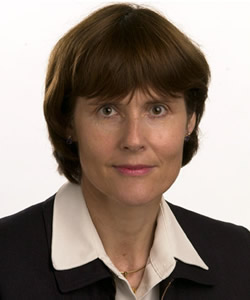Leadership transitions can breathe fresh life into stalled institutions and debates. Both Pope Francis and Archbishop of Canterbury Justin Welby are raising new hopes as they bust stereotypes and staid expectations. A topic that they and their counterparts in leadership positions, formal and informal, should address with energy and new ideas is public integrity. That includes most visibly and prominently the struggle to combat corruption.
Corruption is a popular topic for pundits and mass uprisings but a nasty and complex subject to do something about. It’s eminently human, linked to sin and culture and engrained social norms and expectations. But it’s also about laws, regulations, and rules. It can actually be measured. Ethics and morality are at the core of governance challenges but so is the challenge of a functional social order and business climate. In the face of endemic corruption, something all too common in the weakest states in the world, pretty much everything is tainted and very little works. A decent life that brings out the best of human nature and allows opportunities, starting with jobs and hope, is stymied. And there are real success stories. Think back on how New York and Boston functioned a century ago. Singapore and Hong Kong were written off in my professional memory as hopeless racially divided swamps of poverty.
It’s not hard to trace how religious leaders, institutions, and ideas figure in this intertwined set of challenges. Religious leaders, notwithstanding daily reminders of their foibles, are more trusted than most other categories of leaders today. We look to them to hold the moral compass, in ways that make the ethical principles that guide us clearer and more real. Religious institutions bind communities in a fractionalized world. They offer space for reflection and help commit us to our better angels. And religious ideas underpin ethics, public and private, whether it is the basic commandments and admonitions (thou shalt not steal, do unto others as you would have them do unto you) or more complex questions. For example, how do we contend with the many grey areas that call for reflection? Much that is legal is not moral and the reverse can be true also. Are there legitimate cultural differences that call for subtle and distinctive understandings of practice and strategies?
The complication is that the rising global integrity movements, of which Transparency International (TI) is the best example, have yet to tap the potential power of religions in effective ways. Religious figures are too often absent from these settings. The reasons are complex. TI, founded 20 years ago, tries earnestly to avoid the taint of neo-colonialism and paternalism by keeping most of its discourse pretty technical. The ethical and moral tones are on the sidelines. The leadership also recognizes the important reality that religion is a vastly complex topic and the way it enters the scene must differ by situation. Local approaches are favored.
But there are some other elements contributing to unease: contested views of integrity itself, and the kinds of nasty questions that arise when anti-corruption starts to bite. Should grand corruption be the priority—the theft of billions of dollars? Or is the corruption that erodes the trust of the poor the real priority? Since corruption is part of the human condition, probably always with us, are compromises ethical? If wheelchairs for the disabled are blocked in a port is it ethical to pay a bribe to release them? Should the priority go to arresting the sleazy policeman or teacher, or the socially honored but unprincipled business leader? Since a brand new order is not likely to be designed anytime soon, how do we navigate second best institutions and leadership? And where do sexual ethics fit into the picture, a set of integrity challenges that seemingly comes high on religious leader priority lists?
Another important complication is the yawning gaps that separate rhetoric and talk (speeches, websites, sermons) about fixing the problem and realities on the ground.
We have an opportunity now to identify real possibilities for action, possibilities that might harness the fresh opportunities of new leadership on the religious side. We need to build on the hard-earned experience in many countries in fighting corruption, the wisdom of courageous leaders, and the potential of new communication technologies to give power to communities, and to make accountability prompt and real.
The reflective side is also important: theological discussions that probe the complexities of corruption in a modern world could help unlock stalled debates. They could help move debates about corruption from rant to action. That’s important because the realities are truly complex and solutions are rarely as easy as they sound. Action needs to be set in a real world where vast sums of money move in the blink of an eye, national borders are real but also porous, election fraud is easier to photograph and pin down than it used to be, and topics like torture and drones come back via various routes to both poverty and poor governance.
The priority is to engage a conversation, to gather positive experience, as well as the negative, to help explore the links among different parts of the picture, and to press, constantly, on the question: what happens next? As part of the discussion, a recently published Berkley Center and World Faiths Development Dialogue brief offers “
Ten Ideas to Enhance Religious Engagement in Global Integrity Movements.”
But two fundamental themes should serve as a reminder of what it’s all about: corruption keeps people poor. And it is something we can do something about, with partnerships that include, as engaged actors, the worlds of religion.



